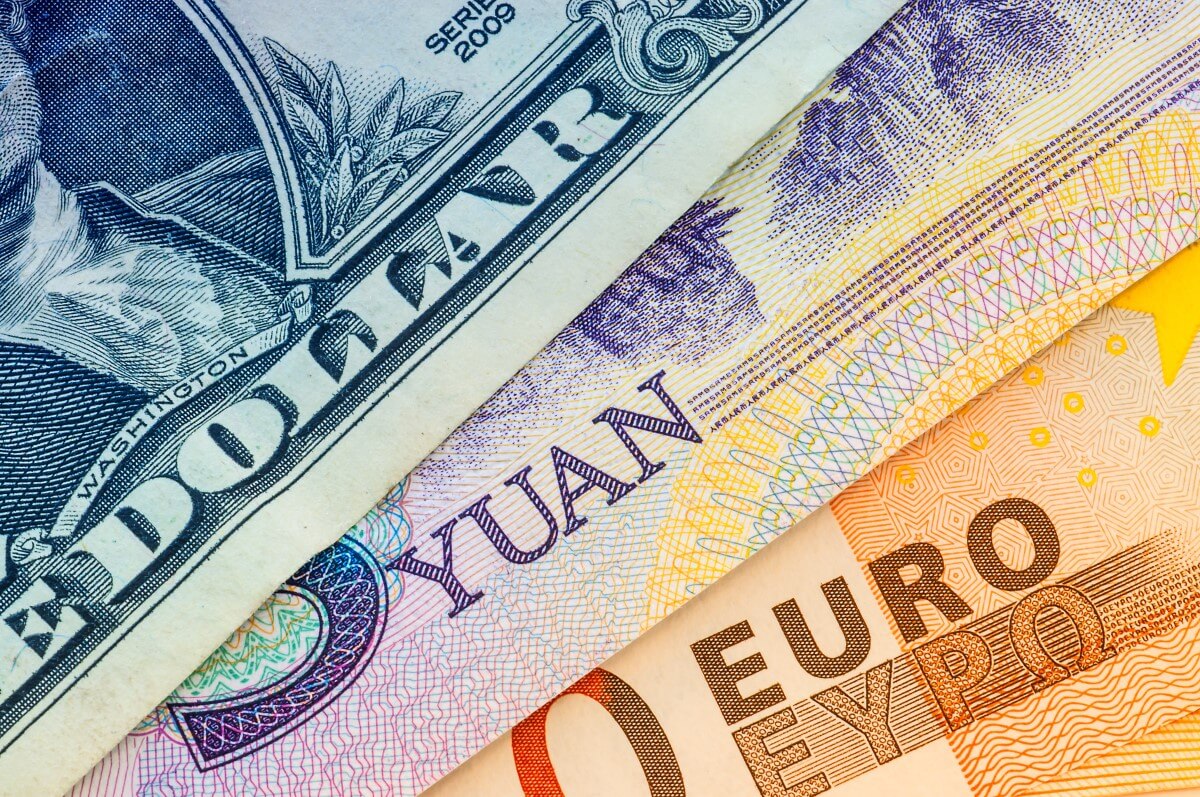
Euro hit 20-year low Monday. What about the dollar and Yuan?
The Euro plunged to a fresh 20-year low on Monday. It exchanged hands at $0.99 as investors’ concerns grew due to Russia’s decision to stop supplying gas to Eurozone through its main pipeline. An energy crisis looms on the horizon, and it may well bring severe repercussions for Europe’s economy. Lately, natural gas prices have greatly influenced the common currency. The Euro drops when prices of the energy source increase.
The Euro tumbled down to $0.9876 earlier today in European trade, hitting its lowest level since 2002. Despite that, the currency rebounded to $0.9939 later, but it still traded lower by 0.2% during the session. Europe is trying to replace Russian company with other suppliers. It wants to build up reserves before winter, but the economy will still face huge losses even if it manages that.
Russia announced that the Nord Stream pipeline would resume gas flow on Saturday, claiming an oil leak in a turbine was the problem. Michael Cahill, a strategist at Goldman Sachs, noted that the country has curtailed gas flows even more than investors expected. As a result, the supply can’t meet the demand, and the resulting destruction is already weighing on economic activity. Cahill also added that he expects the common currency to fall further below parity and trade at $0.97. The Euro will likely remain around that level for the following six months.
Furthermore, the British Pound shaved off 0.5%, plunging to a new 2-1/2 year low of $1.1444 in the early trading. Market players are waiting for a new British prime minister’s announcement, which is due around 1130 GMT.
How is the U.S. dollar trading?
On Monday, the dollar index skyrocketed to 110.27 briefly, hitting its highest level against a basket of six major currencies since June 2002. But the dollar rescinded some of its gains later, at last trading lower by 0.2% at 109.74.
Traders are looking out for European Central Bank (ECB) meeting due on Thursday. Forex markets have priced an almost 80% chance of the bank hiking interest rates at a supersized 75 basis point. The common currency has declined by approximately 8% in the past three months, and ECB officials want the Euro to stabilize. They also have to stop rising inflation through a tightening policy.
However, Simon Harvey, the head of FX analysis at Monex Europe, noted that the central bank might prematurely push back on currency market pricing. That would come as welcome news to the German manufacturing sector, as the latter’s new export orders continue to decrease, but it would also fan the energy-related inflation pressures. And that would ultimately make the European Central Bank’s goal of price stability much harder to achieve.
Riskier currencies plummeted on Monday due to pessimistic market sentiment. The Australian dollar dropped by 0.5%, trading near a seven-week low at $0.6773. Meanwhile, the greenback rallied even against the other safe-haven currencies. It soared to 140.59 versus the Japanese yen.
The Chinese currency also suffered today. The offshore Yuan decreased to a fresh two-year low. It traded at 6.9543 per dollar at last. Investors worry about the government issuing new coronavirus lockdown measures in China.
China’s southern tech hub of Shenzhen decided to adopt tiered anti-virus restriction measures starting today. Moreover, Chengdu declared an extension of lockdown restrictions as the country tries to hinder fresh outbreaks.
What about the EM currencies?
Most of the Asian EM currencies ended in the red against the U.S. dollar on Monday. The Philippine peso collapsed to a record low, suffering the most. Geopolitical concerns in Europe, along with extended coronavirus lockdowns in China, weighed on emerging market currencies.
The peso tumbled down by 0.2%, hitting its lowest level at 56.99 today. At the same time, Vietnam’s dong declined by 0.4%. The currency plunged to an almost two-and-half-year low, while the Taiwanese dollar and Singapore dollar shaved off between 0.2% and 0.5%.
Moreover, the South Korean won plummeted by 0.7%, reaching its lowest level since April 2009. On the other hand, the rupiah edged down by 0.1%, even as stocks in Jakarta soared by 0.8%. According to a finance ministry official, the inflation rate for 2022 remains in the 6.6%-6.8% range in Indonesia, which is normal. As a result, the central bank was able to delay hiking interest rates till last month.




